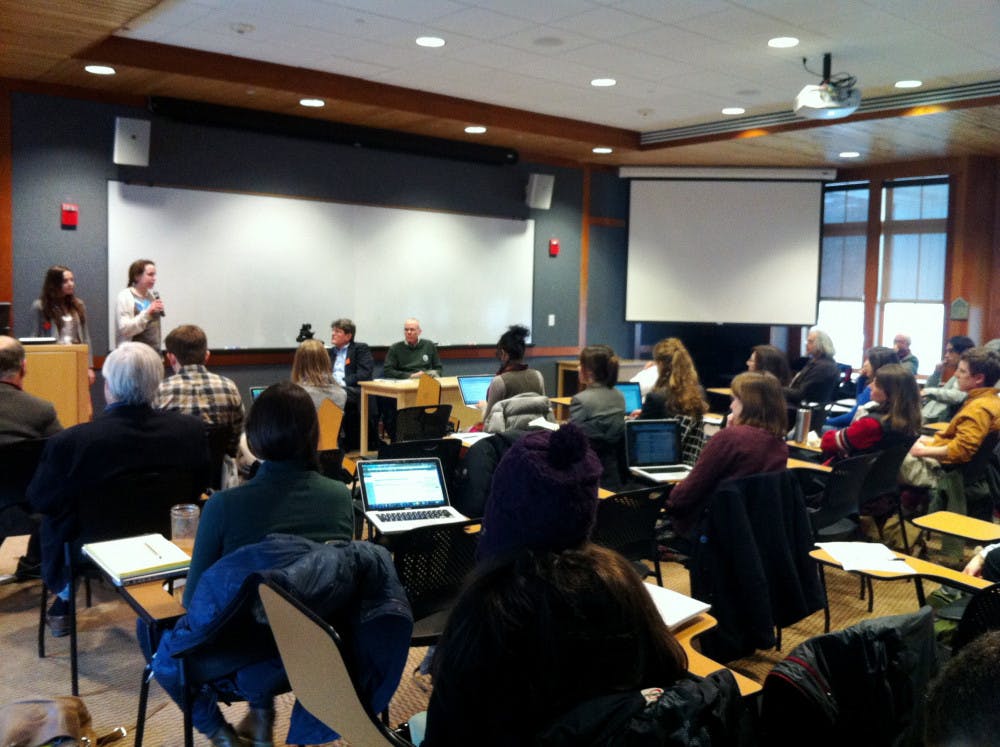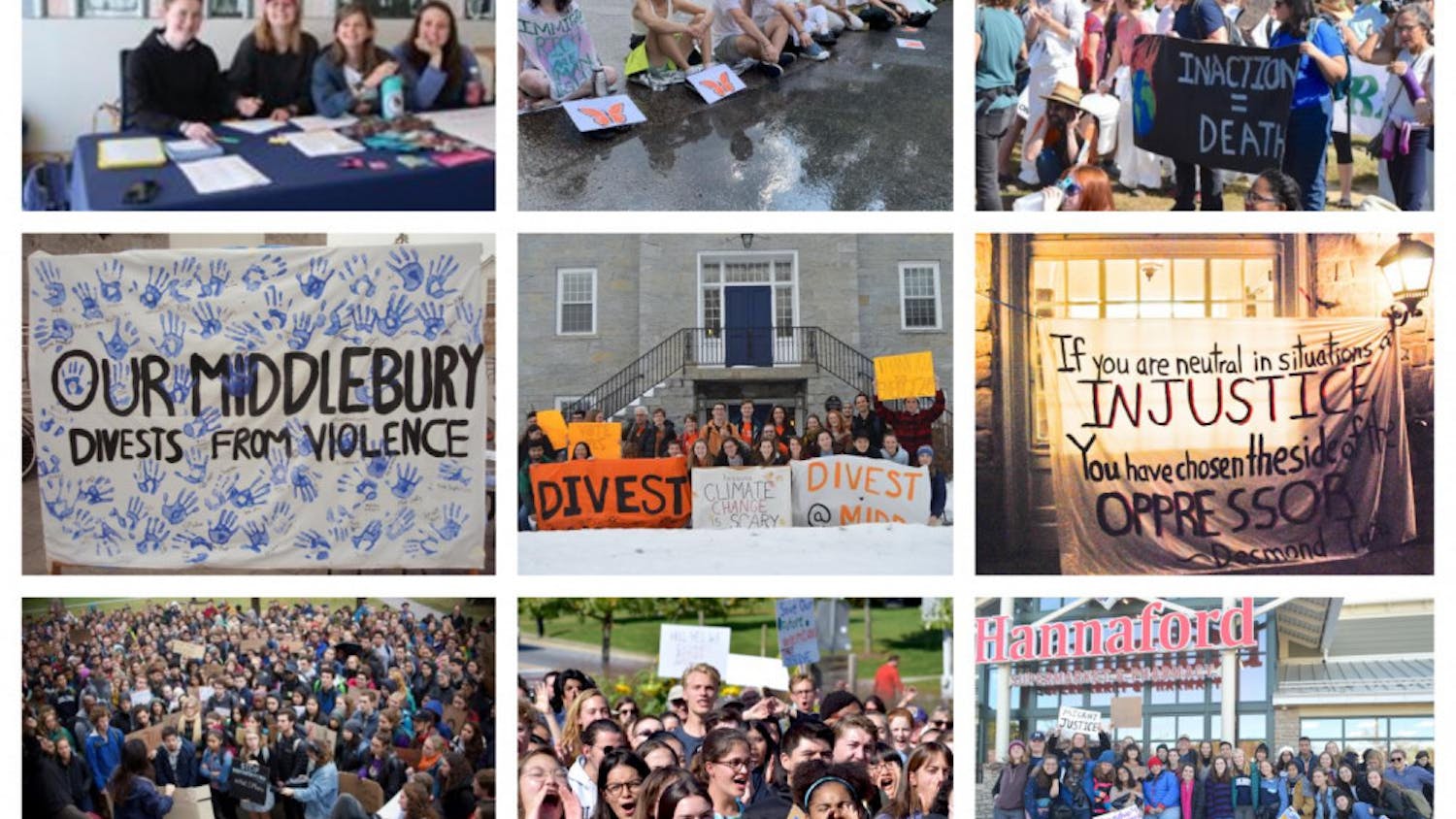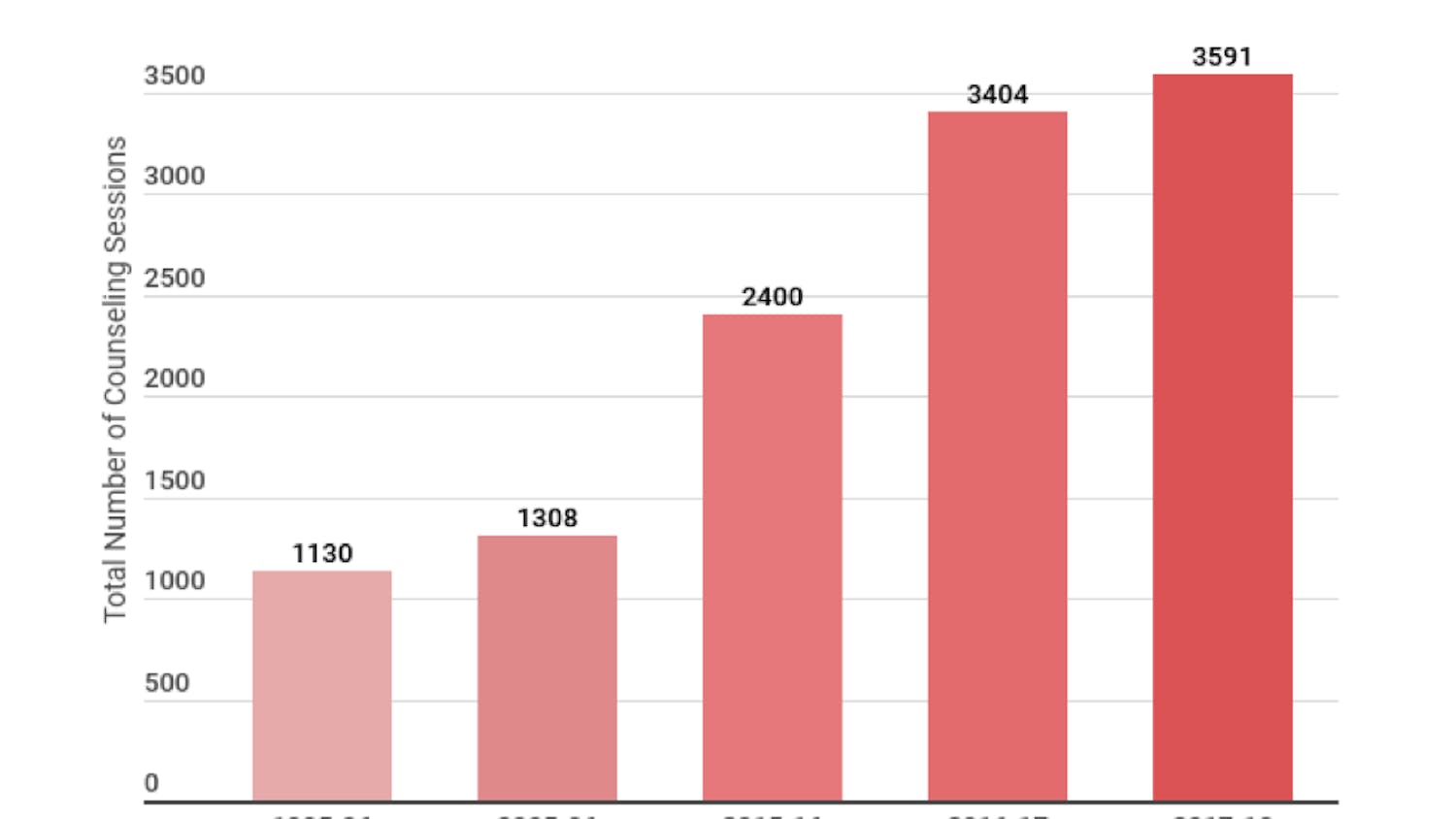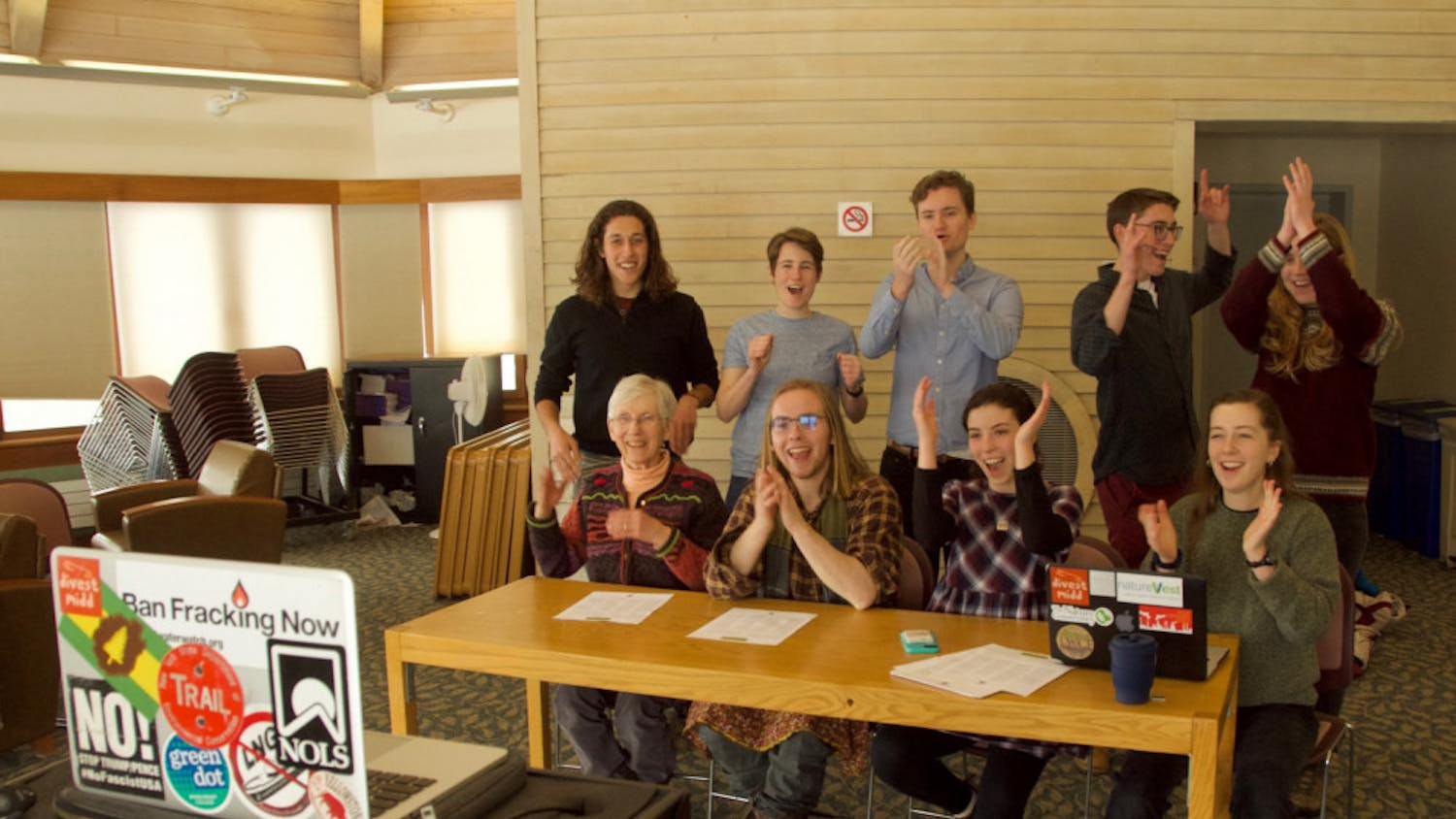The Campus' Leah Pickett '13 and Molly Talbert '13.5 will be liveblogging "Beyond Divestment: Money and Finance for Living Economy," a talk by president of the New Economics Institute Bob Massie and Scholar in Residence in Environmental Studies Bill McKibben. Beyond Divestment is a day-long summit aiming to explore economic alternatives in the areas of alternative currencies, time banking, impact investing, financial system regulation and reform, and "new economy" coalition building. The New Economics Institute is live streaming the events here.
1:33 (Leah) - The event has drawn to a close. Two representatives of Middlebury's Divestment For Our Future group closed out the program and invited participants to come to BiHall 219 at 3:30 today for the series' next event.
1:29 (Leah) - McKibben: The composition of the board of trustees is a major roadblock because these people are 1) very rich, 2) often connected to Wall Street, 3) not inclined to look the morality and utilitarianism of investments, and 4) mostly interested in the “bottom line.”
1:22 (Leah) - We’ve now entered the Q&A portion of the presentation. The first question is: What’s the same and what’s different in terms of divestment from South Africa and divestment from fossil fuels? The answer: in South Africa, people still thought the issue of apartheid was irrelevant; it was too big, too far away, and initially appeared to have too little to do with Americans’ own lives. It took a lot of time for people to draw parallels between what was going on in South Africa and our own experiences and history in the United States. This kind of awareness will grow. The “disgrace” of not talking about climate issues in politics extended to the “pathetic reporters” who refused to ask about it during the presidential campaign, but Hurricane Sandy brought the issues to people’s minds. Massie links Hurricane Sandy (McKibben later references Hurricane Irene as well) to major events in South Africa that raised people’s awareness of the issue and finally galvanized them to action. Significantly, Massie talks about the "political miscalculation" that those talking about divesting from South Africa weren't serious. They were in fact very serious, and only once people realized that this was a crisis that was not going to go away did policy really start to change. The implications for campaigns for divestment on college campuses are clear.
1:15 (Molly) - Massie says, "There is a mix of theory and practice unfolding around the country right now [regarding the new economy] and I don’t think anything is going to be the same … people are asking what is an economy, what is a business, what is the role of an investment?"
1:08 (Leah) - Massie says that not only are places and ideas changing, but places as well. Vermont is a prime example of one of these places; he says it is a “leadership community” in the country because, on the state and organizational level, it is experimenting with so many ideas for the new economic model at the same time.
1:06 (Leah) - Think about it: how neoliberal are your economics textbooks at Middlebury? (Probably very.) Massie cites a change in the ways we learn about economics in school as one of the ways we can experience a paradigm shift towards this “new economy.”
1:03 (Leah) - Massie: The idea of this “New Economy” is referred to by different names; sometimes the solidarity economy, sharing economy, resilient economy, sustaining economy, restorative economy, and collaborative economy. Though all these terms emphasize different aspects of the concept, they all posit that the economy should be an, “instrument to serve the needs of the people and the planet, rather than a machine that takes people in, crunches them up, and spits them out.”
12:58 (Molly) – Bob Massie refers to a YouTube video that has recently gone viral, illustrating wealth inequality in the U.S.
12:54 (Leah) - Massie: “You want people to see things in a way so that they can never ‘unsee’ them’… that’s a process of social transformation.” He delves into discussing the financial industry, saying that some of the major issues of our time are climate, growth, our broken economics and financial system, and the massive wealth inequalities in America. He asks what a "sane" democracy would do to solve these issues.
12:52 (Leah) - McKibben: divestment is “a wedge for making us understand how we can get off a system that quite literally is destroying the planet around us. Fifty years in the future, people aren’t going to care about… the fiscal cliff, the sequester; they’ll be asking ‘the Arctic melted, and then what did you do?’ And that’s really, at some level, the question we’re addressing with all this work.”
12:51 (Molly) – Bob Massie begins his talk. “For many of you, we’re going to be talking about this for the rest of our lives.”
12:49 (Molly) – Bill McKibben wrapping up his speech, saying, “The most important phrase that came out of the last five years with the financial crisis was probably, “too big to fail” … Really, when you think about it, anything that is “too big to fail” is too big.”
12:46 (Molly) – “The image to think about when we think about the new economy, … [is that] when we were growing up, when we got information we got three TV channels. Now, we live in a world with a multiplicity of information,” said Bill McKibben.
12:43 (Leah) - The Orchard is completely full. McKibben is in the midst of explaining why the most important “concrete reality” we have to deal with that will force our society to move in new directions is “the reality of what is happening ecologically on the planet.” A term he has brought up multiple times is "the new economy."
12:42 (Molly) – Bill McKibben speaking, saying, “We have to get off coal, oil, and gas and we have to do it fast.”
12:40 (Leah) - McKibben introduces Massie as a “hero in this really important work of trying to imagine what possible economic futures look like.”
Comments





